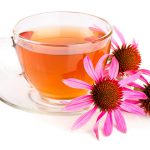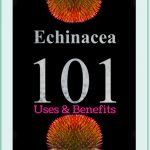What Is Echinacea?
History of This Powerful Herb

The Energetics of Echinacea
It is an alterative (blood cleanser), antibiotic, carminative (prevents gas), and stimulant.
Echinacea Uses and Benefits
Uses of Echinacea
-
The herb can kill harmful agents surrounding the injury
-
Bring down inflammation
-
Use its nutrients to rebuild to the damaged area.
Benefits of Echinacea
With hundreds of years of use and experimentation, the benefits of echinacea have become validated by science.
1. Reduces Pain
2. Immune Support
3. Detoxifying Agent
4. Kills Infections
Another way that echinacea is a great ally to your immune system, is that it can fight off infections. When microorganisms get into the body, a weak immune system could expose you to the possibility of being overrun with illness. Echinacea helps the body by killing these agents, and serious viral infections. It can’t eliminate these viruses, but it can keep them low enough to reduce symptoms caused by these illnesses.
5. It Can Reduce Inflammation
One of the most important parts of healing the body is the reduction of inflammation. This part of the process protects the wound while it heals or until you take action to heal the area. Echinacea can take down the painful swelling that can work against you in the need to speed up the healing process.
6. It Can Fight Cancer
7. Helps Your Skin
8. Helps Your Breathing
9. Fights Depression
10. It Can Be a Laxative
Echinacea is truly a wonder herb. Studies have acknowledged that drinking 2 cups of echinacea tea a day can help make you more regular. But, please note that consuming more than the recommended amount could lead to some unpleasant effects. It is effective as a laxative, so be careful about how much you take.
How do I Make an Echinacea Decoction?

Understanding Echinacea Safety Precautions
Safety and Reactions





